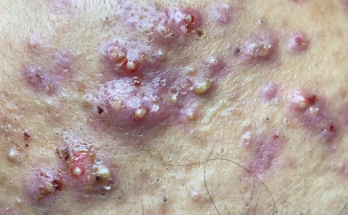The Holistic Health Spectrum: Exploring Diverse Paths to Well-being
Our approach to health and healing is incredibly diverse, encompassing a vast spectrum of methodologies. From the scientifically proven methods of conventional medicine to the time-honored traditions of alternative therapies and the integrated approaches of holistic care, we have a rich tapestry of options to explore when it comes to optimizing our well-being. This post will delve into these varied approaches, examining their principles, applications, and the potential for synergistic benefits.
Conventional Medicine: The Foundation of Modern Healthcare
Conventional medicine, often called allopathic or biomedicine, reigns supreme in addressing acute illnesses and life-threatening conditions. This approach firmly relies on scientific evidence and rigorous clinical trials. Its cornerstone techniques include:
Pharmacological Interventions: The Power of Medication
Pharmaceuticals are central to conventional treatment. From antibiotics combating bacterial infections to antihypertensive drugs managing high blood pressure, medications play a crucial role in disease management and prevention. The development of each drug undergoes extensive research and testing to ensure both efficacy and safety.
Surgical Procedures: Precision and Intervention
Surgery remains a vital intervention for numerous conditions. From removing cancerous tumors to repairing injuries, surgical procedures offer precise solutions for a wide range of health issues. The advancement of minimally invasive techniques has significantly improved recovery times and minimized complications.
Radiation Therapy: Targeting Disease with Energy
Harnessing the power of high-energy particles and waves (like X-rays), radiation therapy effectively targets cancerous cells, impeding their growth and proliferation. Often utilized in conjunction with surgery and chemotherapy, it offers a crucial tool in cancer treatment.
Chemotherapy: Systemic Cancer Treatment
Chemotherapy uses drugs to target rapidly dividing cells, a characteristic of cancer cells. While highly effective, it can also affect healthy cells, resulting in side effects like nausea and fatigue. Ongoing research strives to increase its specificity and mitigate adverse effects.
Physical Therapy: Restoring Movement and Function
Physical therapy (PT) plays a critical role in rehabilitation. Using exercises, manual therapy, and modalities such as heat and cold therapy, PT helps patients regain mobility and function after injuries or surgeries. It focuses on alleviating pain and improving movement.
Alternative Medicine: Exploring Natural Healing Methods
Alternative medicine encompasses a broad range of practices that often focus on natural healing and the body’s inherent ability to restore itself. These methods are sometimes used in place of, or in conjunction with, conventional treatments.
Ayurveda: The Ancient Indian System of Holistic Health
Originating in India, Ayurveda emphasizes the balance of the body’s energies (doshas) through personalized approaches. Treatments involve herbal remedies, dietary adjustments, yoga, and meditation, aiming to restore harmony and prevent disease.
Traditional Chinese Medicine (TCM): Balancing Vital Energy
TCM utilizes techniques like acupuncture, herbal medicine, and tai chi to balance the body’s vital energy (Qi). Acupuncture, for example, involves strategically placing needles to stimulate energy flow and promote healing.
Homeopathy: The Principle of “Like Cures Like”
Homeopathy operates on the principle of “similia similibus curentur” (“like cures like”), employing highly diluted substances to trigger the body’s healing response. It addresses a broad spectrum of health concerns, from chronic conditions to acute ailments.
Chiropractic Care: Focusing on Musculoskeletal Health
Chiropractic care focuses on the musculoskeletal system, particularly the spine. Through spinal manipulation and adjustments, chiropractors aim to alleviate pain and improve function.
Herbal Medicine: The Therapeutic Power of Plants
Herbal medicine leverages plant-based substances for therapeutic purposes. A deeply rooted practice, it’s also the source of many modern pharmaceuticals derived from plant compounds.
Holistic Health: A Unified Approach to Well-being
Holistic health embraces a comprehensive perspective, considering the interconnectedness of body, mind, and spirit. This approach integrates various conventional, alternative, and lifestyle practices to promote overall well-being.
Mind-Body Therapies: Bridging Mental and Physical Health
Practices such as meditation, yoga, and tai chi emphasize the mind-body connection. These techniques help reduce stress, enhance mental clarity, and improve physical flexibility and strength.
Nutritional Therapy: The Foundation of Optimal Health
Nutritional therapy utilizes dietary interventions to prevent and manage diseases. It champions whole foods, balanced diets, and personalized nutrition plans tailored to individual needs.
Massage Therapy: Relaxing and Rejuvenating the Body
Massage therapy involves manipulating soft tissues to alleviate pain, reduce stress, and encourage relaxation. It’s effective in treating muscle tension, chronic pain, and anxiety.
Integrative Medicine: Bridging the Gap
Integrative medicine cleverly blends conventional and alternative therapies to offer a truly comprehensive approach. This patient-centered model considers various influencing factors, including lifestyle, environment, and emotional well-being. Collaborative care, personalized treatment plans, preventive measures, and extensive patient education are cornerstones of this approach.
Challenges and Considerations in Integrative Healthcare
While integrative medicine offers vast potential, several challenges remain. These include the need for more robust scientific evidence supporting some alternative therapies, the establishment of clear standards and regulations, addressing cultural acceptance, and ensuring cost-effectiveness and accessibility for all.
Conclusion: A Future of Holistic and Integrated Healthcare
The field of health treatment is multifaceted and constantly evolving. By integrating diverse approaches, we can offer comprehensive care that caters to the physical, mental, and emotional dimensions of health. The future of healthcare lies in embracing a holistic and integrative approach, ensuring that individuals receive the care best suited to their unique needs and preferences.



